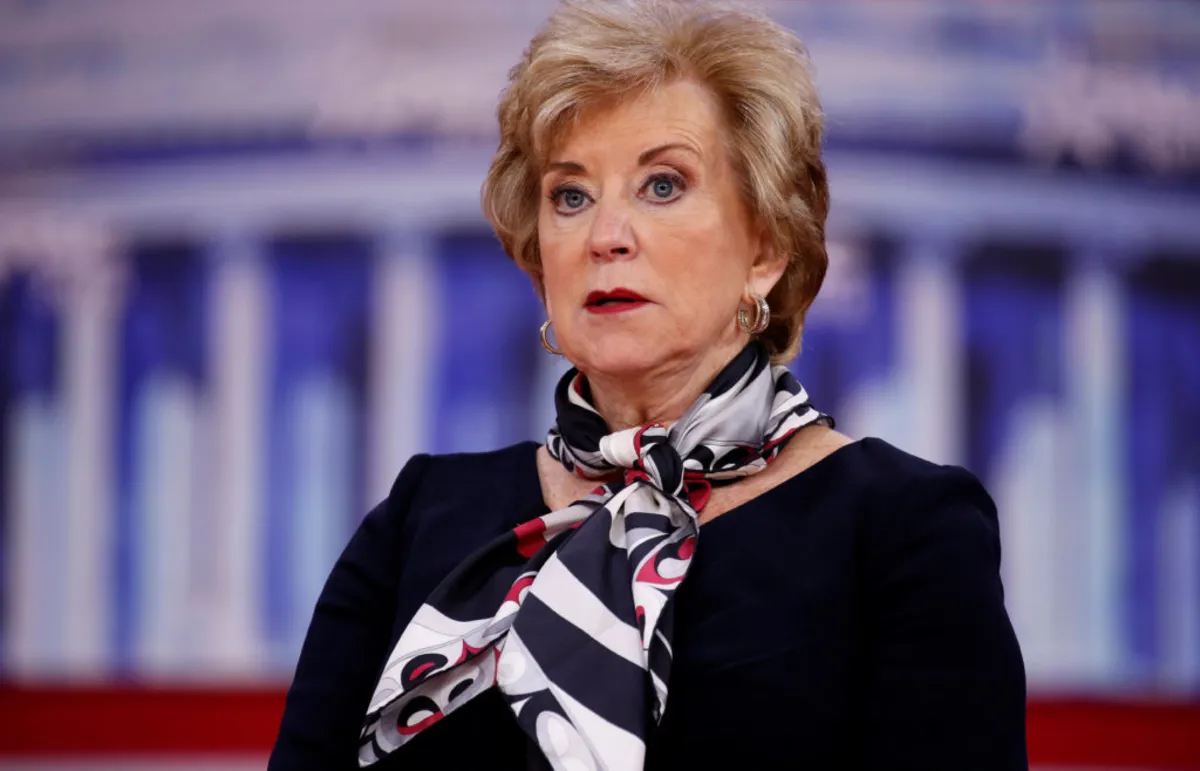
On Monday, the Senate voted to confirm Linda McMahon, a former wrestling executive, as the nation's education chief. This appointment places her at the helm of a department that President Donald Trump has publicly criticized and promised to dismantle. The confirmation passed with a narrow vote of 51-45, reflecting the contentious nature of her selection.
As the new Secretary of Education, McMahon faces the dual challenge of winding down the Department of Education while simultaneously advancing Trump's controversial education agenda. Trump has already signed significant executive orders aimed at eliminating diversity programs and protections for transgender students in schools. He has also pushed for the expansion of school choice initiatives. Notably, Trump has indicated his desire for McMahon to effectively put herself out of a job by closing the department altogether.
Linda McMahon, 76, is a billionaire and the former CEO of World Wrestling Entertainment (WWE). Her experience in education is limited; she served for a year on Connecticut’s state board of education and has been a trustee at Sacred Heart University. Her supporters argue that her executive skills are essential for reforming a department that many Republicans believe has failed to enhance American education. Conversely, critics claim her lack of traditional educational leadership raises concerns about her qualifications and the potential impact of budget cuts on students nationwide.
Senate Minority Leader Chuck Schumer (D-N.Y.) expressed concerns prior to the confirmation vote, highlighting that “Americans believe in public education.” He emphasized that citizens do not support the abolition of the Department of Education and warned that significant cuts to education funding could lead to billions in losses for schools across the country.
During her confirmation hearing, McMahon attempted to distance herself from Trump’s harsh rhetoric. She stated her intention to make the Department of Education “operate more efficiently,” rather than defund essential programs. She acknowledged that only Congress holds the authority to close the department and committed to preserving vital funding sources, including Title I money for low-income schools, Pell Grants for college students, and the Public Service Loan Forgiveness program.
McMahon hinted at the possibility of transferring certain departmental functions to other agencies. For instance, she suggested that enforcing disability rights laws might be better suited to the Department of Health and Human Services. Prior to her confirmation, there were discussions within the White House about an executive order aimed at cutting the education agency's budget as much as legally possible while requesting Congress to shut it down entirely. Some of McMahon's supporters urged the White House to delay this order until after her confirmation to mitigate backlash.
Established by Congress in 1979, the Department of Education primarily disburses funds to schools and colleges across the nation, managing billions of dollars annually for K-12 education and overseeing a $1.6 trillion federal student loan portfolio. Trump has claimed that the department has been infiltrated by liberal ideologies that influence American education. Schools and colleges have been under pressure to comply with directives to eliminate diversity programs, with the Trump administration setting a compliance deadline of February 28.
The Trump administration has already initiated significant changes within the department, including cutting numerous contracts deemed “woke” and unnecessary. These actions have included a reduction in staffing at the Institute of Education Sciences, which is crucial for assessing national academic progress. At her hearing, McMahon emphasized that the agency would utilize funds as directed by Congress, downplaying the impact of cuts as mere auditing processes.
A long-time ally of Trump, McMahon left WWE in 2009 to pursue a political career, having run unsuccessfully for the U.S. Senate on two occasions. She has contributed millions to Trump's campaigns and previously served as the head of the Small Business Administration during his first term. As she embarks on this new role, her ability to navigate the complexities of the education landscape will be closely scrutinized.
The education community and lawmakers across the spectrum will be watching McMahon’s actions closely as she begins her tenure as Secretary of Education, a position that carries significant implications for the future of American education policy.